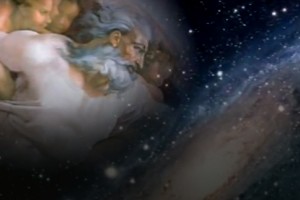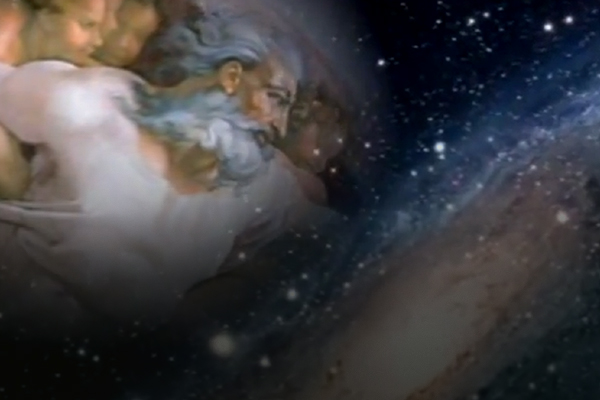
I told him I believe this creator God is a personal God based on His ability to decide. I asked my dad to examine the wallet again. What happens, I asked, if I simply let go of the wallet? What forces are felt by the wallet? I let go of the wallet and it immediately dropped to the ground. Why did that happen? Why didn’t it just float for a minute and then drop to the ground when gravity decided to act on it? Why don’t we ever see that happen? You and I already know the answer: gravity does not decide when to act. Gravity is an impersonal force, and the effect of an impersonal force is felt the minute the force enters into the environment.
If we were floating around in a zero gravity environment (an imaginary room, for example) and we then inserted the force of gravity into this room, we would all immediately be pulled to the floor. The effect of the gravity is felt the minute gravity enters the room. That’s the way impersonal forces work. They can’t decide whether or not they will activate their effect. Their impact is felt immediately; the minute the force enters the room. Gravity doesn’t enter the room and say, “Not yet, not yet, not yet… OK, now!” Gravity cannot decide when its effect will be felt. It cannot decide when it will act. The ability to decide whether to act is a characteristic of personhood. The ability to move and act freely as a result of a conscious independent decision is a characteristic of free agency. It is a characteristic common to persons, not impersonal forces.
What does this tell us about the force responsible for creating the universe? Well, if it’s an impersonal force, it can only be as old as the universe. In other words, the minute the impersonal force existed, its creative power was felt, and all space, time and matter also began. Remember our gravity example: the minute gravity appears, you feel its power. In a similar way, the minute an impersonal creative force appears, we would then observe its power in the creation of the universe. This means the impersonal force would only be as old as the universe created as a result of its existence.
But if that is true, we have a dilemma. If the creative cause of the universe is only as old as the universe itself, then we must ask the obvious question: “What caused that force to exist?” Whatever caused the cause of the universe; this would then be the more powerful cause we would want to identify. Do you see the problem here? A true and singular first cause must be eternal by definition. In a very real sense, we innately know the cause of this “caused universe” must be some kind of eternal, uncaused, first cause with the ability to decide. Whatever caused this universe, it did so as a decision, and this ability to decide gives away the fact the first cause of the universe is a personal force. If the creative cause of the universe is only as old as the universe itself, then we must ask the obvious question: 'What caused that force to exist?' Click To Tweet
I told my dad I believe personal theism is true because the first, uncaused cause of the universe was able to decide as a personal agent. About eight minutes into the conversation, I was able to make a case for theism and personal theism, but this still left us with a number of theistic options. My father, a committed atheist my entire life, married his second wife over forty years ago. She became a Mormon and together they had six children all raised in the LDS Church. The argument I made so far with the wallet and the dollar could also be used to make a case for the god(s) of Mormonism. It was important, therefore, for me to take one more step with my illustration to explain why I believed the personal God who created everything in the universe was, in fact, the Christian God described in the New Testament. I’ll describe this last step in tomorrow’s post. In the meantime, here’s a video I created to take the second step in this process:

J. Warner Wallace is a Dateline featured Cold-Case Detective, Senior Fellow at the Colson Center for Christian Worldview, Adj. Professor of Christian Apologetics at Talbot School of Theology, Biola University, author of Cold-Case Christianity, God’s Crime Scene, and Forensic Faith, and creator of the Case Makers Academy for kids.
Subscribe to J. Warner’s Daily Email
J. Warner Wallace is a Dateline featured cold-case homicide detective, popular national speaker and best-selling author. He continues to consult on cold-case investigations while serving as a Senior Fellow at the Colson Center for Christian Worldview. He is also an Adj. Professor of Christian Apologetics at Talbot School of Theology, Biola University, and a faculty member at Summit Ministries. He holds a BA in Design (from CSULB), an MA in Architecture (from UCLA), and an MA in Theological Studies (from Gateway Seminary).


































Pingback: Stepping Toward the Christian God With A Wallet and a Dollar | Cold Case Christianity
Pingback: 2. God is a Person | 3 Guys and a Blog